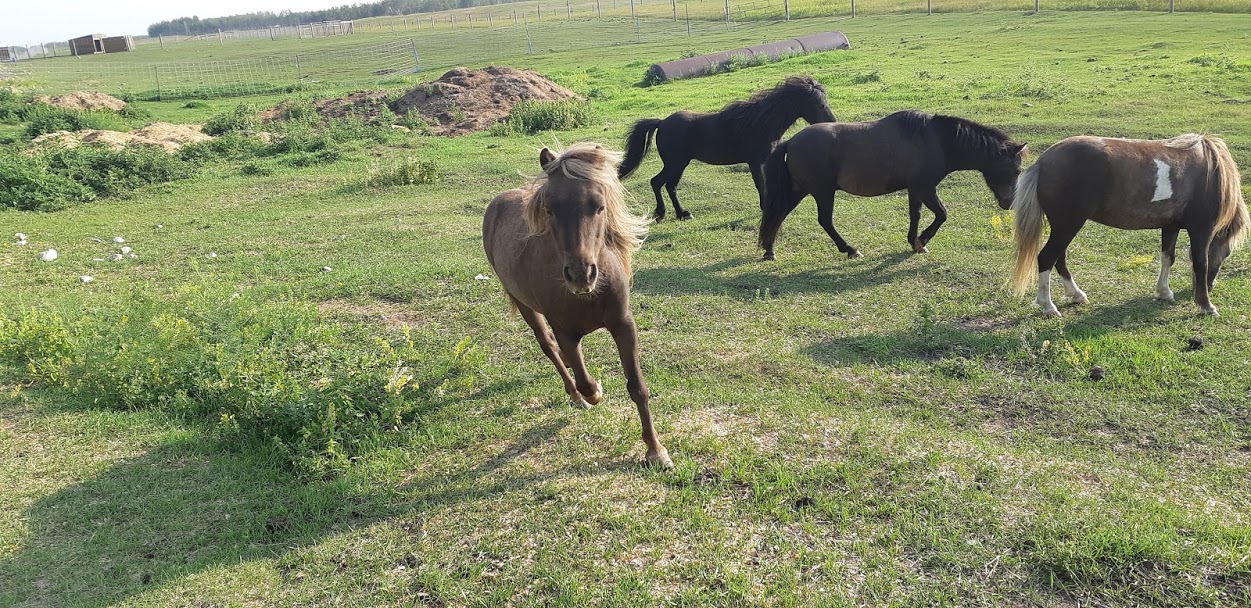I’ve been thinking about this a lot lately, and for quite a while, trying to wrap my head around what I really think about this.
Like so many things in my horsemanship journey, my ideas about this topic have sure changed a lot in recent years. But that’s how it should be – if we’re always learning, then what we believe is always going to be evolving.
We used to have lots of hard to catch horses, and it was a non-issue. Our pens were set up so it was easy to run them into a smaller pen to catch them, and we were always out there as a family, so there was lots of help if we had to corner any horse to get a halter on them.
My Grandad always said that he “never met a horse that was any good that was easy to catch on pasture” – and what he meant was that if they weren’t smart enough to avoid work in favour of grass, than they weren’t smart enough to be very good at their job either.
It makes a lot of sense, actually.
But fast forward to now – about 6 years ago we started moving the horses from my grandparents to here. Here we can still run them in, but it’s not as easy, and I’m usually on my own. So it’s much easier if I can just walk into the pasture and catch them.
And I can. There are 36 equines on the property currently, and while there’s one or two who take a little bit of patience, I can catch every single one without cornering them or containing them.
But there was another big shift that took place over that same time frame – I started using positive reinforcement in virtually all my interactions with my horses.
Even very kind traditional or natural horsemanship is still just avoidance of pressure and constantly being told what to do. That’s not going to be more rewarding than turnout with their friends.
Now, with positive reinforcement, coming in to “work” means that something is in it for them. They get rewarded for behaviours I like, they have control over their participation, and they have a voice in everything that happens to them. Instead of just doing their job, they’re keen and willing participants in the training.
These days, my biggest challenge is convincing them to go back to the pasture when the training session is over.
My Grandad was right (as he usually is!) – if a horse is easy to catch when all they do is work, you do have to question their intelligence.
But if the work is fun for them, then why wouldn’t they want to volunteer?
If you have a horse who is comfortable with general handling, but still hard to catch, maybe it’s time to look at how he feels about the time you spend with him. What could you do to make it more rewarding for him?
Time spent with our horse shouldn’t just be fun for us. Let’s make sure it’s fun for our horse too.

My minis come to me where ever they are but, when they do I give them a small treat like a horse cookie. Is it wrong to give them this? They only get one small one and then I love on them! My husband says I spoil them! They come to me without the treat but, I’m thinking they probably think they will get one. Thanks, Kris
No, you’re doing just right! Where I say positive reinforcement above, I mean treats! Though your scratches and snuggles are positive reinforcement too – something they like, so they’re going to want to repeat the behaviour to get it again.
Food is a primary reinforcer – something they need to survive – so it’s very valuable to them. They get a nice little shot of dopamine in their brain when they get the food reward, and eventually the same good feelings and that were associated with the treat, become associated with you and whatever you’re doing with them.
I have a Tennessee Walking Horse that was purchased from a kill buyer before I bought him. Nice horse, rides great, loves treats. He is still nervous when you enter his stall and hard to catch in pasture. Any suggestions?
I think it will come in time Laura! You don’t know his reinforcement history with humans, and I think it’s safe to say it isn’t all good. The more positive experiences he has with you, the more he learns that being caught leads to good things like treats and scratches, the more you’re adding to the “bank” and eventually the good memories should be enough to overpower the bad.